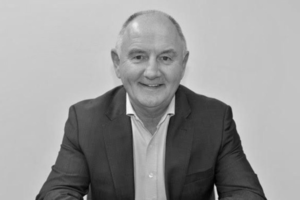The need to achieve real scale in advice - and serve all AustraliansBY IAN KNOX | FRIDAY, 30 MAY 2025 12:50PMOne of the great social challenges in financial services today is the millions of everyday Australians who want and need financial guidance but cannot afford it or access it in a way that allows them to use it with dignity in their lives. The question is who owns this problem - and who cares enough to do something about it? The conundrum is that the financial planning profession should own the social licence to solve this issue - yet it cannot do so with traditional technology, nor can it do so affordably under the current, punitive regulatory framework. At the same time, profitability in servicing Australians who can afford advice is at an all-time high - so why change a successful target market? The reason is this - without moral leadership in the financial services sector, we default the responsibility to regulators and government. That's a total abrogation of duty and, frankly, it won't work. Yet we can manage and control a better outcome as a profession. All that's required is visionary leadership and the courage to think beyond the prism of collective inertia. This is where technology steps in - and leadership steps up - because the solution is within our grasp. Traditionally, technology solutions have been dominated by the platform market and a handful of front-end software providers. Both these sectors concentrate their efforts on improving the intermediary experience, not the client experience. That's back to front in terms of service - but it makes sense for shareholder-focused growth. Still, who really cares about those who can't afford to join the club? We've spent the last decade talking about scale. About making advice "accessible and affordable." About bringing more Australians into the fold. But if we're honest, most of what's been delivered has been incremental - even with world-class platform functionality. Take the platform industry's latest "scalable" solutions for example. Many boast about helping advisers grow from 99 to 120 clients - a 20% increase, on paper. But if you've ever run or bought a financial advice business, you know that nudging up your client count by a few dozen doesn't equate to real growth. It doesn't help when onboarding hundreds of clients after an acquisition. And it certainly doesn't solve for the complexity of insurance-heavy portfolios that don't fit neatly into a passive investment model. The scale we're being sold isn't true scale - it's just more efficient workflow. So where to next? Let's address the real challenge. Millions of Australians need financial advice but can't access it - not because they're unwilling, but because the system isn't built for them. Think of families navigating the cost-of-living crisis. Young professionals trying to buy their first home. Carers, part-time workers, self-employed Australians. They're not "unadvised" due to lack of interest - they're unadvised because we've made it unprofitable to serve them. Our regulatory framework, despite its intentions, has made things worse. Compliance obligations have grown so burdensome that advisers are forced to focus on high-net-worth clients - typically pre-retirees or retirees. That's where the margins are, where the advice is clearer, and where the cost-to-serve can be managed. But this narrow focus comes at a cost - one the profession hasn't fully reckoned with. We're ceding an entire generation of potential clients. Worse still, advice businesses risk losing existing relationships once intergenerational wealth transfer kicks in. The baby boomer wealth wave is already breaking. If advisers don't have relationships with their clients' adult children - if they haven't built relevance with the next generation - those assets will walk. The profession's intergenerational blind spot This is the blind spot at the heart of our current trajectory. We talk about "clients" as though they all fit the same mould - affluent, established, nearing retirement. But that's not modern Australia. We are more diverse, more digitally engaged, and more economically polarised than ever. And yet, the advice profession remains largely under-geared to serve the full market. Studies from the US show that up to 80% of inherited wealth results in the termination of the existing adviser relationship. That demands a new model - one that engages younger generations in the way they want - digital-first when it suits them, face-to-face when it matters. If financial advice becomes a service only for the wealthy, we fail not only those who need us most, but also the public trust that underpins the long-term sustainability of our profession. We need a new model The good news is we can do better. New technology allows us to dramatically expand the reach of advice - not by replacing advisers, but by amplifying them. There is a complementary model to the one we use today. A hybrid where fully digital advice - not just digital tools - sits alongside platforms and front-end software and handles the time-consuming, compliance-heavy tasks that can be safely automated. Fact-finding. Goal setting. Super analysis. Insurance adequacy. Risk profiling. By outsourcing this through digital means, advisers are freed up to do what they do best - coach, guide, build relationships, and manage portfolios. The result is the ability to serve thousands - not dozens - of clients, making advice truly personal, accessible, and affordable for all Australians. That's the model Otivo was built on. Not robo-advice 1.0, which simply wrapped investment products in a digital interface - but a personal advice engine advisers can own, deploy, and scale. AI-powered, fully documented SoAs can be generated automatically, allowing firms to grow without bloating their back office or burning out their team. Imagine delivering compliant, tailored advice to hundreds more people - including clients' children, low-balance super members, or new customers not yet ready for a full-service relationship. You don't need to integrate it. You don't need to rebuild your practice. You just invite clients to use it - under your brand, with your oversight. Well-built, well-governed digital advice isn't competition. It's enablement. What this could mean for a planning business
The leadership moment for advisers This is a leadership opportunity. We can stick with incremental change - adding a few clients, automating notes - or we can choose transformation. We can lead. We can build advice models that serve more Australians, more sustainably, and more profitably. This is how we grow our social licence. This is how we build generational relevance. And this is how we safeguard the long-term value of advice businesses. Let's stop tweaking and start transforming - for the good of our profession and the country. This is what leadership looks like. |
Latest News
Shaw and Partners splashes $63m for New Zealand expansion
|4600 relevant providers yet to meet qualification standards: ASIC
|Nominations open for 2025 Power50
AFCA urges adviser clarity on SMSF wholesale investor test
Cover Story

Moving mountains
FOUNDER AND FINANCIAL ADVISER
MAZI WEALTH























I see the current push for scalable, digitally-enabled advice as both an overdue evolution and a profound leadership challenge for our sector. We're not just talking about efficiency gains or regulatory box-ticking; we're being called to fundamentally rethink how we deliver value to all Australians-not just those who fit the traditional advice model.
What resonates with me is that the real opportunity isn't about choosing between digital and human-it's about orchestrating both to meet people where they are. The most sustainable practices are those that blend robust technology with authentic, human-centred engagement. The hybrid model isn't a threat to professional advice; it's an amplifier of it, freeing up advisers to focus on the nuanced coaching and strategy that clients truly value.
But let's be honest: technology alone won't close the advice gap. We need regulatory courage, business model innovation, and a willingness to let go of legacy thinking. The future belongs to those who can design advice journeys that are as intuitive and accessible as the best consumer apps, yet anchored in the fiduciary standards and technical rigour our profession demands.
The next generation of clients-whether they're disengaged super members or digital-native wealth accumulators-are telling us what they want: relevance, transparency, and empowerment. It's up to us to listen, adapt, and lead. If we get this right, we don't just grow our businesses; we rebuild trust and extend the social licence of advice to millions more Australians.